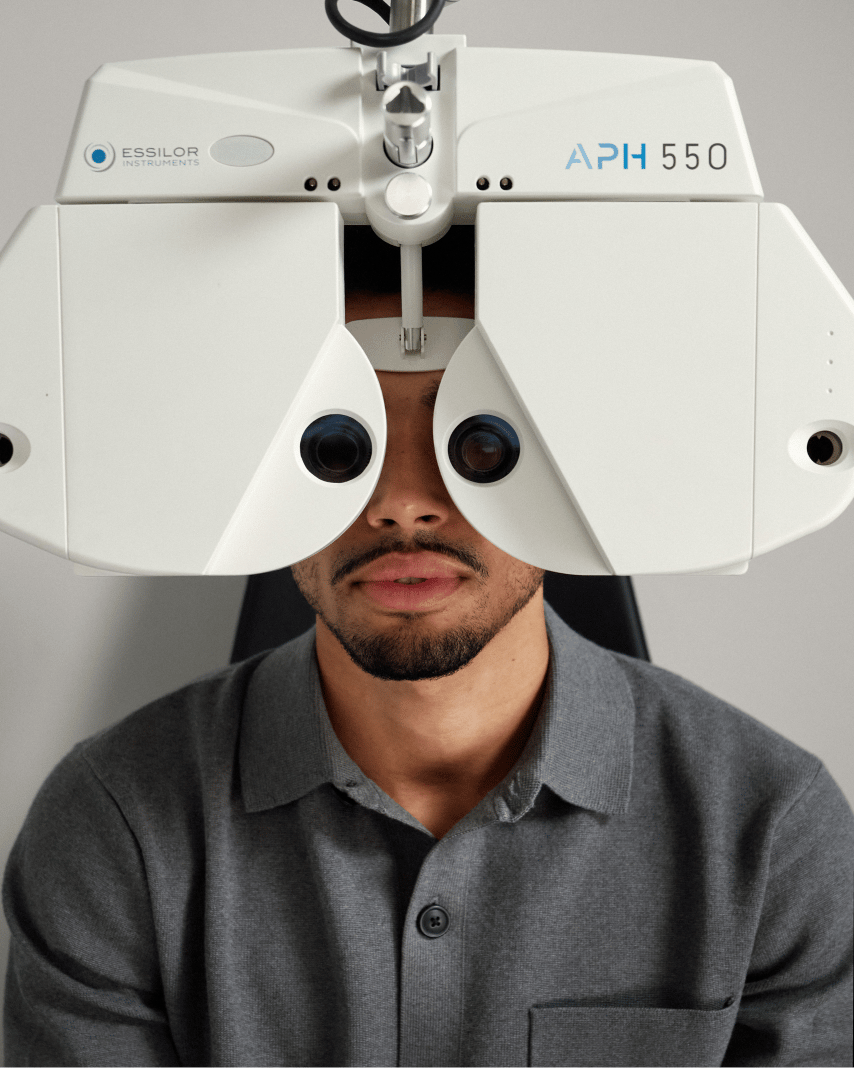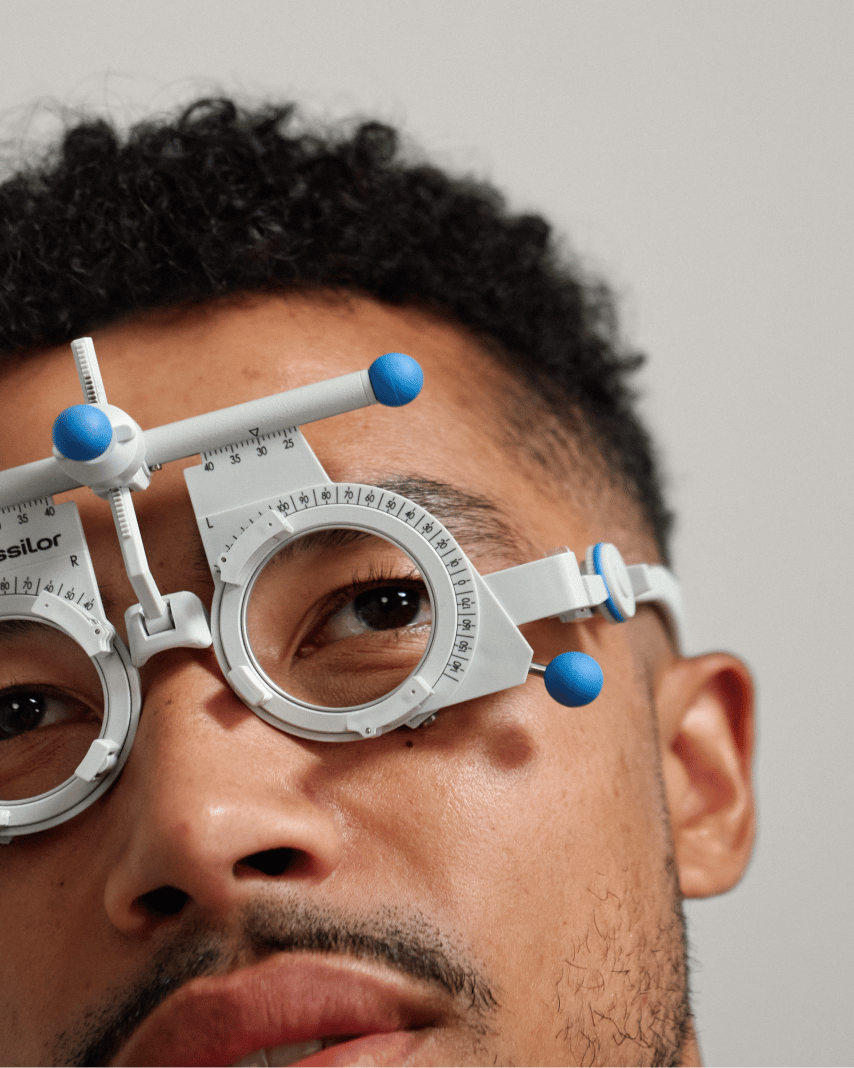



Frequently Asked Questions
It's a comprehensive eye health screening for non-symptomatic eye disease (not just an assessment of your vision) completed using state-of-the-art technology.
NB: this is not for contact lens prescriptions or related problems.
The ultimate purpose of an eye test is to assess your eyes for common refractive errors (or vision conditions), including:
Myopia: Difficulty in seeing objects at a distance
Hyperopia: Difficulty in seeing objects up close
Astigmatism: Distorted vision due to irregular curvature of the cornea
Presbyopia: Difficulty reading at arm's length
Once we have completed the test we will advise on how much correction is needed in your lenses. These corrections are represented by a series of numbers which make up your prescription.
We recommend having your eyes tested every two years, even if they feel 100%. Our eyes change with time, so it’s important you know what’s going on with yours. If you are experiencing any discomfort or you suspect your prescription might have change, book you eye test as soon as possible to eliminate any possible causes.
With us, eye tests are entirely free.
For UK & IE please see here.
Book an eye test directly here and choose your nearest store.
It takes around 20 minutes (for both single vision and varifocal glasses), so you could even book one during your lunch break.
We recommend having your eyes tested every two years, even if they feel 100%. Our eyes change with time, so it’s important you know what’s going on with yours.
After turning 40, our eyes start changing more rapidly. We recommend getting an eye test more frequently (even once a year).
No, we don't offer contact lens eye tests or fittings.
Easy! Click here and select your location to find your closest store, then follow the steps to choose a time slot. If you prefer, you can also give us a call or pop into a store to arrange the eye test in person.

